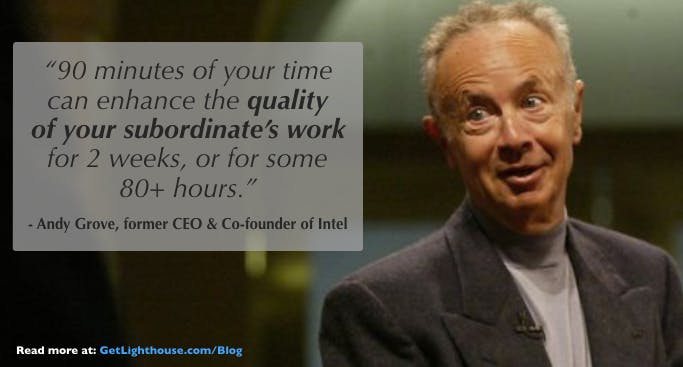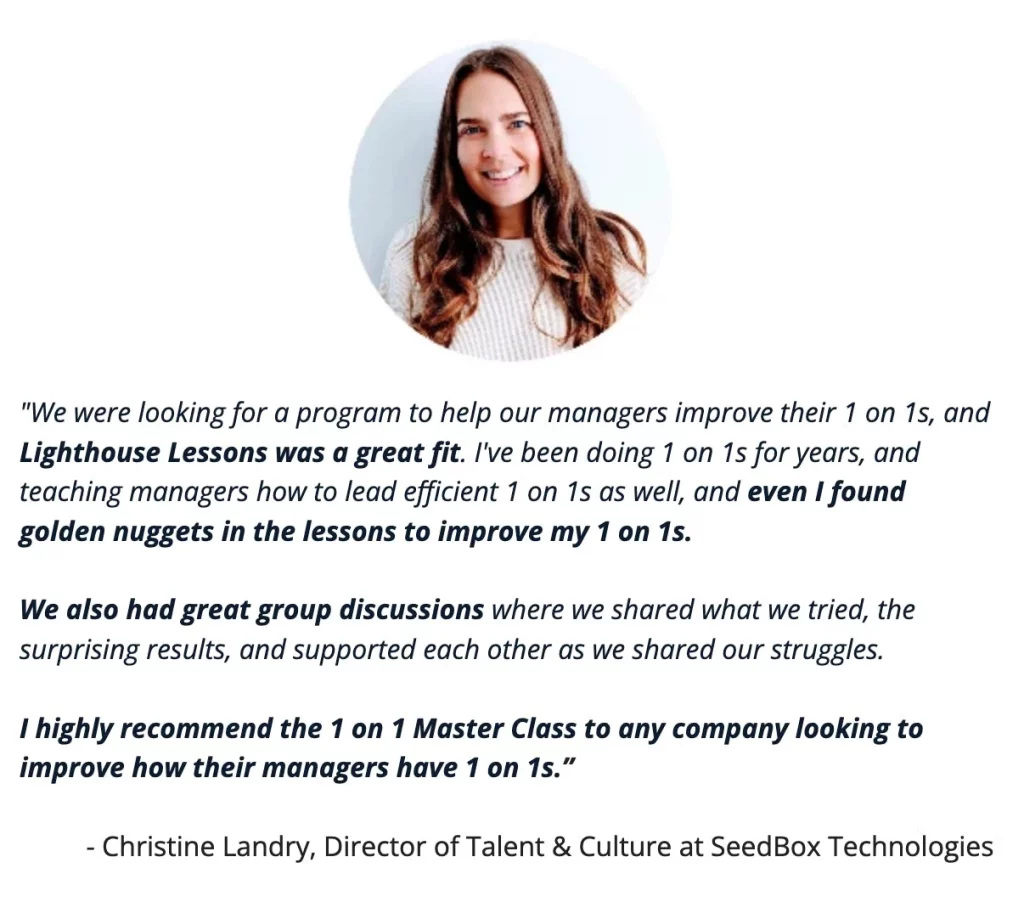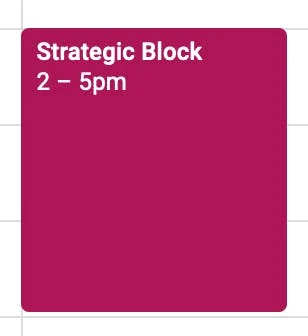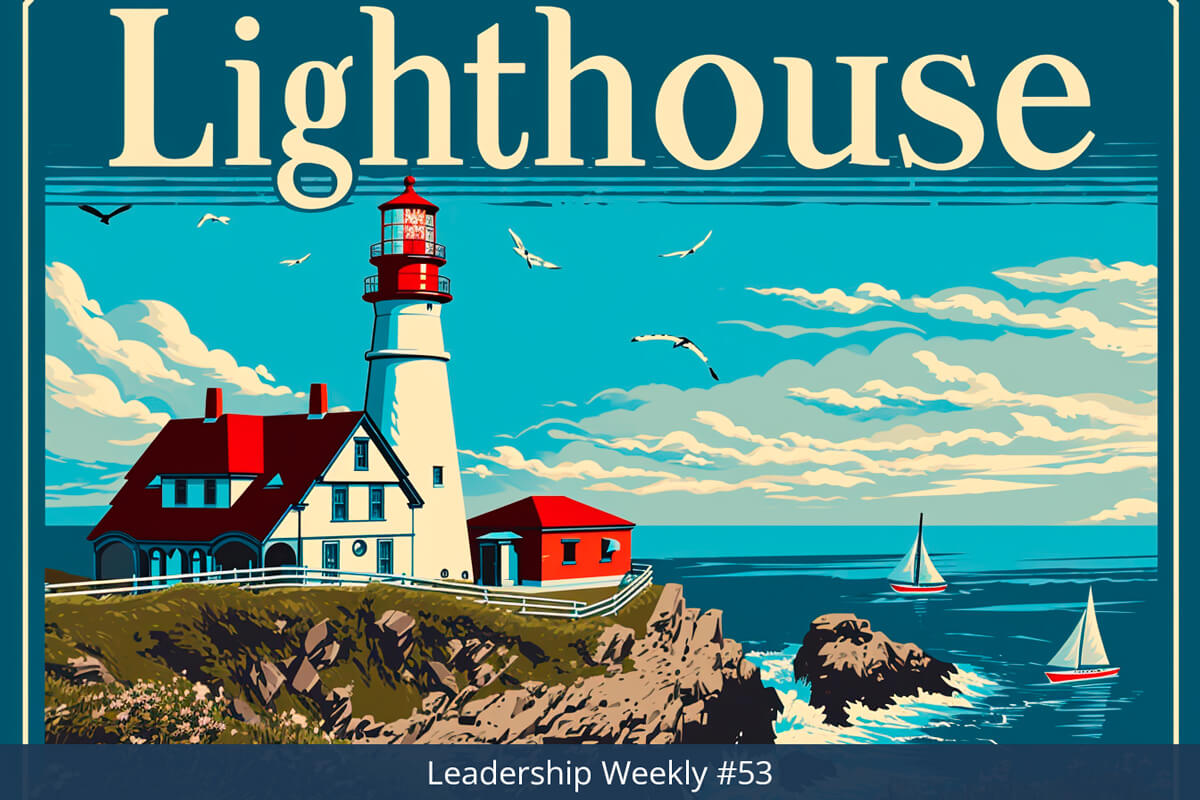How are you feeling about some of your recent predictions? I'm pretty pleased with some recent things we discussed in the Lighthouse Leadership Weekly:
- Dan Campbell, head coach of the Detroit Lions, led his team to a second straight victory, this time with a 31-23 victory. They're now one game from the Super Bowl, showing exactly the grittiness he has built into the culture.
- Antonio Pierce, interim coach of the Oakland Raiders, took a 3-5 team and finished strong, going 5-4 down the stretch including 3-1 in their division leading to his players vocally advocating for him and the owner naming him head coach this week.
In today’s edition, we look at both the beginning and end of jobs, as well as some of my favorite ways to improve.
REMINDER: This is your *LAST CHANCE* to join us for the Lead from the Heart Lighthouse Lessons course, which starts this Wednesday, January 31st. Sign up to join us now here.
Let’s dive in…
Table of contents:
- 🥘 Food for Thought on What to do with a PIP
- 📰 News & Reports for Managers on how to get a 10-30% improvement
- 📚 Book of the Month on my favorite quick lesson in the 12 Week Year
- 🗣️ Last Call! for the Lead from the Heart course
Note: This is a preview of our weekly leadership newsletter, Lighthouse Leadership Weekly (LLW).
To get this sent to your inbox every week, along with our latest long form essays on this blog, you can sign up here.
🥘 Food for Thought
Hot take:
— The Random Recruiter (@randomrecruiter) January 23, 2024
If you’ve been put on a PIP, the best course of action is not to try to improve.
It’s to find another job.
Is this a hot take? Is this true?
To be honest, I think to some extent, it is.
And that has no reflection on you, the kind of manager that really cares and reads leadership newsletters like this.
Why PIPs are the kiss of death for most employees.
So why would The Random Recruiter's advice be spot on for most people. Here's why:
- Their manager already wanted to fire you. Most managers don't take good notes, so if they want to let you go, HR demands a PIP, which then is simply a paper trail to fire you a few weeks later.
- If there are layoffs, PIPs go first. No one likes cutting anyone from their team, but if you have to make a choice, the obvious one to cut is anyone on a PIP. I know companies that made that the explicit policy even during layoffs.
- If you survive, there may still be baggage. Even if you survive a PIP, there can be strained relationships and resentment from whatever issues led to the PIP. Your first impression is already burned.
- It's easier to find a job while you have one. It's scary how many people I know that have been unemployed for many *months* now. It is always easier to find a job while you have one, and then you don't need to ask the question of what happened previously.
- You might dodge reference checks if you're still at the PIP job. Sometimes, companies will respect your wishes not to "mess up your current job" by referencing checking them if you still work there. If you left after a PIP, that's harder, though employment laws may protect you somewhat (though many people will still talk off the record).
With all that in mind, should you treat PIPs that way?
Not exactly.
How great managers should handle PIPs on their team.
The easiest way to put this is that good managers should have their cake and eat it, too.
The fact is, if it gets to a PIP, we know you have a problem. But, you don't have to treat it like a death sentence for your team member.
Instead:
- Be honest with them. Yes, they may want to look for another job, unless they want to do the work to improve.
- Be specific with them. If someone actually wants to improve and stay, then they need to know *exactly* how they need to improve. It's your job as their manager to tell them and then show them examples of when they came up short.
- Be consistent with them. At this point, you both are probably a bit frustrated by the situation. It will only get worse if you move their targets, change how you evaluate them, or flip flop on whether you want them to succeed.
The beauty, and reward, of being this kind of manager is that with some genuine investment and organized effort really can turn around some underperformers. Many times those people are very appreciative you gave them a real chance, and they save you the hassle of having to hire and train a replacement.
If you're dealing with an underperformer and thinking about how you can run a PIP that actually has a hope of turning the person around, start here:
- Read our step by step guide: How you can turn around underperformers and disengaged employees
- And to avoid it getting to the point of a PIP: Use the Prepare-Listen-Act model to give high impact feedback
📰 News & Reports for Managers
📌 Gallup analyzes the value of *weekly* 1 on 1s. The results do not surprise us.
We frequently share data from Gallup here in the newsletter. They're the gold standard of workplace research. This is for a few key reasons that are worth reiterating for new and old readers alike:
- They have larger sample sizes than anyone else: Gallups suveys report across hundreds of companies, and always thousands of respondents, sometimes approaching hundreds of thousands. You can be sure they're getting statistical significance.
- They're surveying more broadly than a tiny customer base: Gallup surveys people all over the world for all kinds of polling (the workplace is just one of many). Too often, workplace data is really just a company surveying their customers and then reporting on it like it's data. That's misleading both because there is bias in only asking their customers, and the sample size is usually too small.
- Their work passes the reality test: Ever see a stat and say, "Hmm...that doesn't match up with what I've seen..." That's probably why there is the old saying, "Figures never lie, but liars figure." We keep sharing Gallup data because every chance I've had to confirm their data anecdotally and with you all...it turns out to be accurate.
So as we started looking for their first release of data in 2024 (which usually their largest report comes in February or March), I came across a classic data point from 2023 that's well worth highlighting.
The Major Benefits of WEEKLY 1 on 1s
There is often a lot of debate about how frequent you should really have 1 on 1s. I regularly have heard push back from managers with statements like:
- "Are they really worth it?"
- "Can't I get away with a lot less than that?"
- "This is a really big time investment! How can I fill my calendar that much?"
You get the idea.
The rule of thumb we recommend is roughly:
- Meet weekly with everyone if you have a team of 5 or less. (That's basically then 1 meeting a day, or 1 afternoon a week)
- Meet every 2 weeks if you have a large team of 6 or more. (Give them each an hour every 2 weeks then so you have time to dig into meaty topics)
- You need a smaller team ASAP if you have more than 10 direct reports. (That's the real reason you don't have time for everyone, and should be fixed instead (here's how) of rationing your calendar)
With all of this in mind then, it's interesting to see the results of Gallup's studies of 14,774 participants across 2,354 teams around weekly 1 on 1s:
"[Participants with weekly 1 on 1s] had 10% to 22% higher engagement themselves, 8% to 18% higher team engagement, 21% to 28% lower turnover and 20% to 28% higher likelihood of performance improvement relative to their peers.
Plus, these effects compound in future years."
Can weekly meetings really make that much of a difference?
Yes. Giving your team regular time and attention can make all the difference in the world as Andy Grove put it so clearly:

But there's more to this than just meeting weekly: You have to know what to do in those meetings.
Gallup's secret to this study: Teaching managers what to do.
The truth is, Gallup didn't just have managers walk into a room and start talking to their team and hope it worked out. They also taught them what to do in their 1 on 1s.
So if you're ready to commit and want those same 10-30% improvements, let's teach YOU how to do it:
- Baby steps: Here's step by step how to start 1 on 1s with your team. We even give you a template for telling your team.
- For the detail-oriented: This is our mega post on how to have amazing 1 on 1s that covers everything.
- For groups who want a hand: Sign up a group for the 1 on 1 Master Class and we'll teach you one simple step per week to transform your 1 on 1s.
Here's what one leader said about our 1 on 1 Master Class:

Want to transform your leaders and teach them how to have 1 on 1s like the Gallup study revealed would make such a big difference? Sign up for more information here.
📚 Book of the Month on my favorite lesson in the 12 Week Year
This month's book of the month is a bit different. It's not directly about leadership, yet every leader needs a good planning process. This one has worked for me for the better part of the last decade.
Here's one of my favorite tactics I learned for it that made a big difference for me:
Schedule your thinking time, just like you would a meeting.
If every meeting can get on your calendar, then so should your most important thinking and strategizing time. The 12 Week Year advocates for two 3-hour blocks of time on your calendar each week.
The first block is a Strategic Block to focus on "Strategic and Money-making activities" and the second block is a Breakout Block, where you are to spend time doing non-work activities such as, "being creative, reading a book, or taking a walk."

I felt guilty at first taking these times, but have come to really appreciate them as my best ideas have often come during Breakout Blocks. It is so easy to get lost in the day to day, never making time for big picture strategy, if I didn't set aside the Strategic block, too. If you've ever had a brilliant idea in the shower, then realize these blocks are creating more of those times for your subconscious to help you with tough problems and fresh ideas.
Now, over time, I have tweaked this to better fit what works for me, and I encourage you to do the same.
The important thing is following the spirit of the tactic, which is to make time for strategic thinking, and breaks to make room for creativity.
In my case, I moved my Strategic Block to Sundays. I find that's the easiest time for me to have an uninterrupted block for reflecting on big picture strategies.
Meanwhile, my Breakout Block is now spread out to 30-60 minutes 3-4 nights a week. I go to a bridge near where I live to take in a sunset, listen to live music, and read a book. I'm always amazed at how many ideas I get while reading, or even the walk to and from there.
Extend this to important parts of your personal life.
Once I realized I should schedule my thinking and creative time, it became clear that I should schedule other things, too.
I found that in doing so, I regained control of my calendar. It helped keep me from ending up being a workaholic who missed times I regretted later, and lacked any sense of balance.
I also learned the important lesson that if you prioritize better, and trust your judgment, then the right things will still get done, and your life will have more balance. All because you blocked off time for things that matter, so you aren't tempted to fill every second with work.
🗣️ Last Call for the Lead from the Heart course
Each program we run for Lighthouse Lessons runs 3 times. We find that's the perfect balance of having the latest, most relevant leadership content for you, and iterating to the best possible program.
After 2 great runs of the Lead from the Heart course in 2023, where we received fantastic feedback and helped improve hundreds of managers like you, we are now in the 3rd and final run of this course starting this week.
If you want to learn:
- How to connect with the hearts of your team to motivate and inspire them
- How to give praise that gets everyone on your team doing their best.
- A variety of Mark Crowley's favorite tactics for giving recognition regardless of your budget
- The key approaches to make you a great, effective coach of your team
- How to hire more people with heart and retain them for the long term
And much more across 12 high-impact, bite-size lessons, plus 2 great Q&As with Mark C Crowley to answer all your questions.
Don't miss out! The program starts this Wednesday, January 31st, so reserve your spot now here.
Sign up to get this newsletter & our latest blog posts straight to your inbox:




